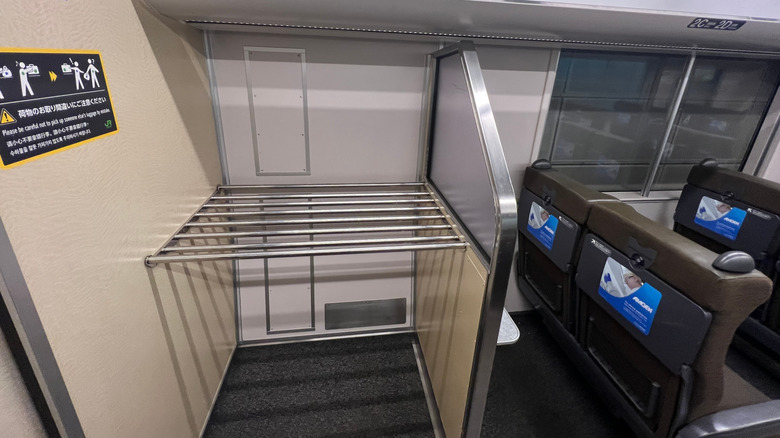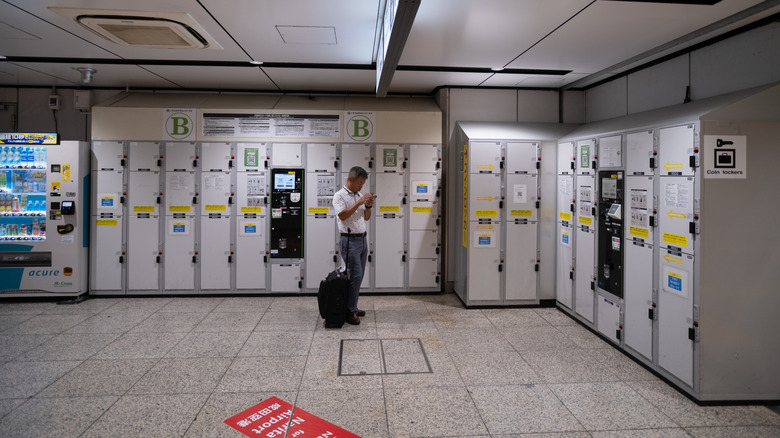Tourists Planning To Use Japan's Train System Need To Follow A Crucial Luggage Rule
For travelers, Japan is a country on a whole other level. With its attention to detail, deep culture, impressive innovations, and delicious cuisine, it is a country that inspires deep admiration. Getting around Japan can be a joy, and there is no better way to do so than by picking up a Japan Rail Pass and jumping on the country's wide-reaching railway network. The train system in Japan is epic. Known for its speed, efficiency, and convenience, with many lines connecting cities, it makes traveling within Japan a breeze. The network features a variety of options, from Shinkansen bullet trains to local lines that offer transportation with incredible views of the countryside.
As with visiting any new country, understanding Japan's systems, rules, and regulations can be challenging, not to mention the all-important task of avoiding making unspoken etiquette mistakes. In Japan, navigating the transportation system involves more than just buying a ticket, figuring out which line to take, or when the train departs. One important rule that first-time visitors to Japan should be aware of is that trains come with a strict luggage rule regarding oversized luggage. Excess luggage can restrict mobility on over-crowded or popular routes, and traveling with oversized luggage requires reservations to be made in advance on certain trains.
Understanding luggage in Japan's transportation system
Not all trains in Japan are equipped for oversized luggage. While there are overhead shelves for luggage, these are often quite small and cannot fit larger suitcases. Seats usually have some leg room that could fit medium-sized luggage, but larger suitcases will not fit and would not be allowed in this area. In fact, there is often a specific compartment for such luggage, and spots need to be reserved in advance.
This doesn't apply to all trains in Japan. For example, trains going to and from the country's airports will accommodate any large luggage. However, on other trains, a penalty of 1,000 yen will be levied if the large compartments are not pre-reserved. What classifies as oversized luggage in Japan? That's a very good question, with the answer being any suitcase over 160 cm in total dimension weighing a maximum of 65 pounds (30kg).
Tips for traveling with luggage in Japan
Planning ahead is key to meeting your luggage requirements and avoiding any penalties that may occur. One great move is to reserve seats close to the luggage compartments needed for extra space, allowing you to keep an eye on your belongings. However, there are alternatives that could make traveling a lot easier in Japan. For starters, there are delivery services known as takuhaibin (takkyubin), a luggage forwarding service that handles the task of delivering luggage to the final destination without travelers having to carry it on trains.
Other alternatives include lockers and storage options found in central stations or other tourist facilities where luggage can be left for a fee per day. This allows travelers returning to the same destination or enjoying a day trip to travel luggage-free for a period. However, this option isn't entirely reliable, as it does come with a fee, and the lockers aren't always free for your bag. The best option to prevent the hassle of worrying about luggage is to travel light whenever possible and to make the necessary reservations when you can't avoid carrying larger luggage. It is also a good idea to read up on the color-coded seating system found on trains in Japan.


